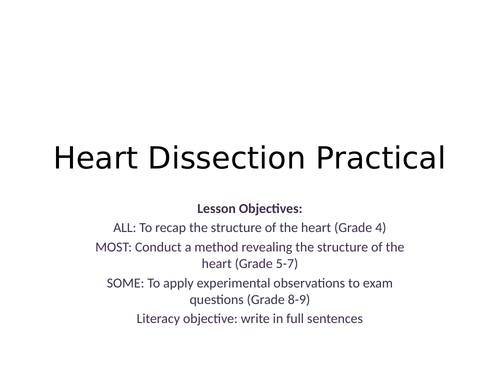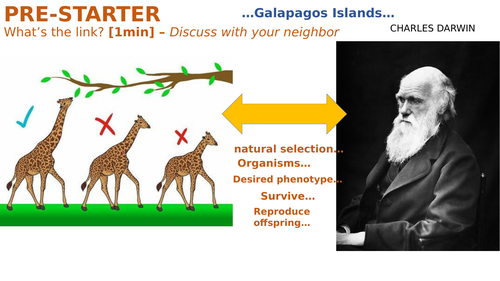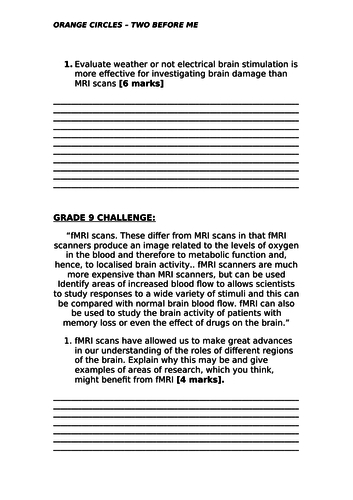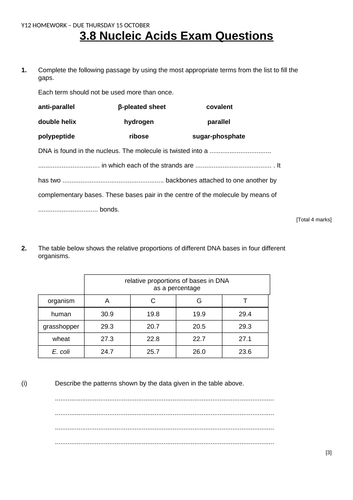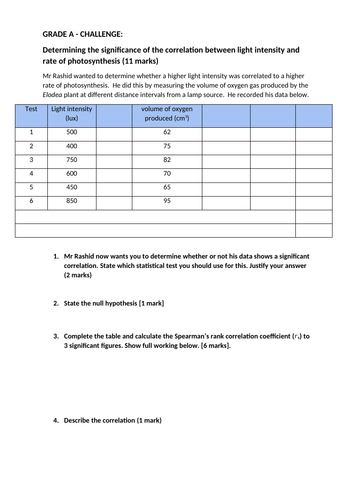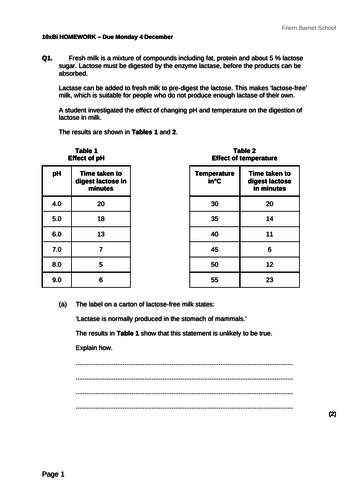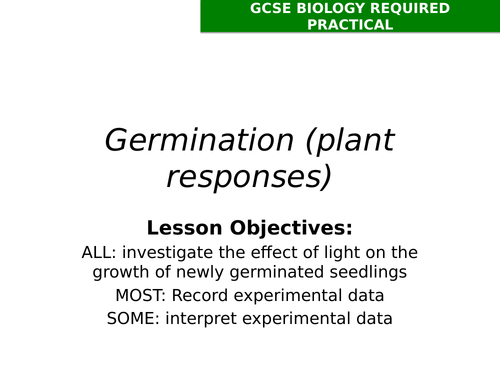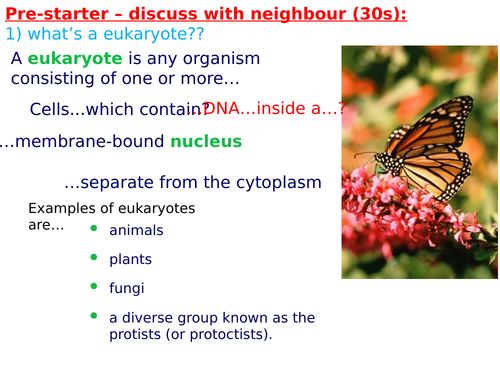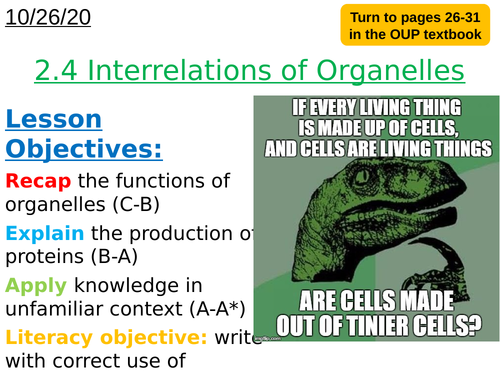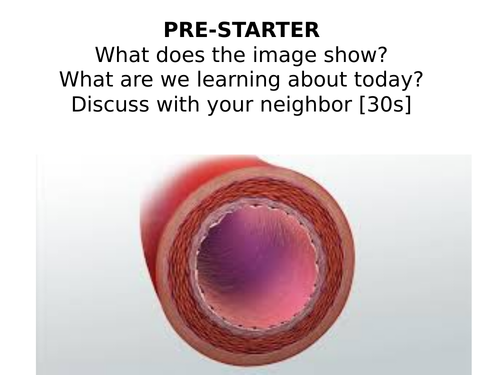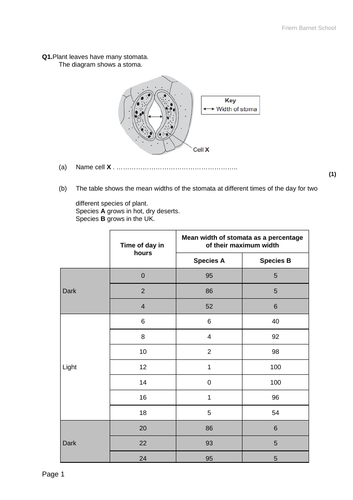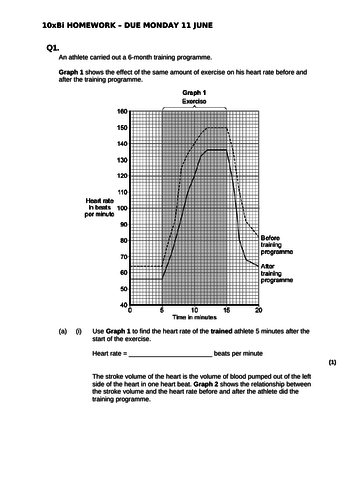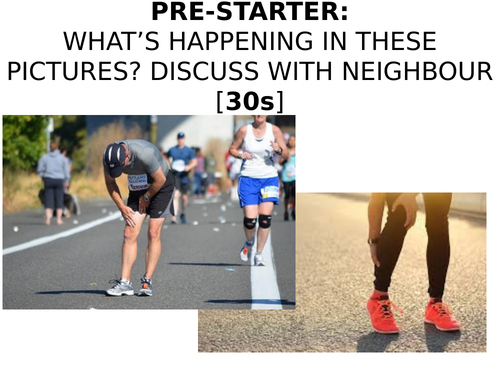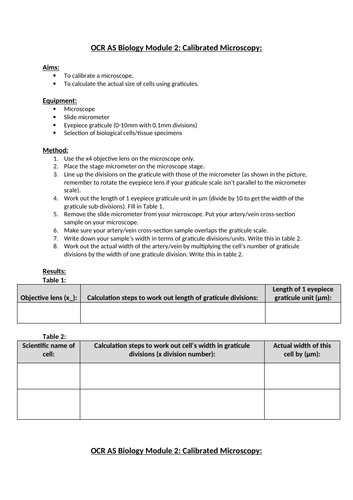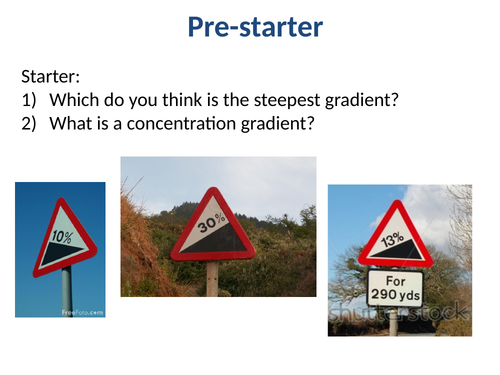172Uploads
30k+Views
2k+Downloads
Biology

2018 AQA GCSE Biology Unit 1 (B1): Coronary Heart Disease and Treatment L15
This lesson is for teaching the above named lesson as part of the Organisation module of Biology Unit 1 (B1) of the new 2018 AQA GCSE specifications for Combined Science: Trilogy and GCSE Biology.
The lesson has the following features embedded:
Lesson has Bloom’s Taxonomy embedded throughout which are also graded for differentiation.
Stretch and challenge tasks throughout (including Grade 8-9+ questions and extended writing)
AfL (3 progress checks embedded)
Differentiation is strong as has been noted in all formal school observations for the last 2 years of teaching AQA.
Narrative of lesson structure is clear and focused as well as engaging.
Pre-starter prepared.
The lesson is geared with top-down approach pedagogy and provide inclusive differentiation for low attaining and medium attaining pupils as well.
The lesson should be ‘tweaked’ to meet the needs of your own pupils.

2018 AQA GCSE Biology Unit 1 (B1): Heart Dissection Practical
A fun lesson for dissecting a lamb’s heart. Enjoy.
Bundle

2018 AQA GCSE Biology Full Lesson Pack.
This pack contains all the lessons for teaching Biology Unit 1 (B1) and Biology Unit 2 (B2) of the new 2018 AQA GCSE specifications for Combined Science: Trilogy and GCSE Biology.
All these lessons have the following features embedded:
Lessons have Bloom’s Taxonomy embedded throughout which are also graded for differentiation.
Stretch and challenge tasks throughout (including Grade 8-9+ questions and extended writing)
AfL (3 progress checks per lesson embedded)
Narrative of lesson structure is clear and focused as well as engaging.
Pre-starter prepared.
All lessons are geared with top-down approach pedagogy and provide inclusive differentiation for low attaining and medium attaining pupils as well.
All lessons should be ‘tweaked’ to the needs of your own pupils.
This pack contains all the additional lessons for B1 and B2 triple science.
Additionally it contains a large exam questions pack complete with a mark scheme for all sorts of questions for AQA GCSE Biology Grade 1-9 with extended writing, numeracy skills and required practical related questions.
Any feedback is much appreciated. You can also purchase the B1 and B2 lessons separately (which also include the B2 triple science lessons).

OCR A-Level Biology (H420): Chapter 10 - Classification and Evolution - Evidence for Evolution L4
Lesson Title: Evidence for Evolution
This lesson is for teaching the above named lesson as part of the OCR specification for A-Level Biology (H420): Chapter 10 - Classification and Evolution.
The lesson has the following features embedded:
Lesson has Bloom’s Taxonomy embedded throughout which are also graded for differentiation.
Stretch and challenge
AfL (progress checks embedded)
Narrative of lesson structure is clear and focused as well as engaging.
Pre-starter prepared.
The lesson is geared with top-down approach pedagogy and provide inclusive differentiation for low attaining and medium attaining pupils as well.
The lesson should be ‘tweaked’ to meet the needs of your own pupils.

2018 AQA GCSE Biology Unit 2 (B2): Brain Biology L4
This lesson is for teaching the above named lesson as part of the Homeostasis and Response module of Biology Unit 2 (B2) of the new 2018 AQA GCSE specification for GCSE Biology.
The lesson has the following features embedded:
Lesson has Bloom’s Taxonomy embedded throughout which are also graded for differentiation.
Stretch and challenge tasks throughout (including Grade 8-9+ questions and extended writing)
AfL (3 progress checks embedded)
Differentiation is strong as has been noted in formal school observations for the last 2 years of teaching AQA.
Narrative of lesson structure is clear and focused as well as engaging.
Pre-starter prepared.
The lesson is geared with top-down approach pedagogy and provide inclusive differentiation for low attaining and medium attaining pupils as well.
The lesson should be ‘tweaked’ to meet the needs of your own pupils.

OCR A-Level Biology (H420): Chapter 3 - Biological Molecules - L8 (part 2)
Lesson Title: Nucleic Acids (part 2)
This lesson is for teaching the above named lesson as part of the OCR specification for A-Level Biology (H420): Chapter 3 - Biological Molecules.
The lesson has the following features embedded:
Lesson has Bloom’s Taxonomy embedded throughout which are also graded for differentiation.
Stretch and challenge
AfL (progress checks embedded)
Narrative of lesson structure is clear and focused as well as engaging.
Pre-starter prepared.
The lesson is geared with top-down approach pedagogy and provide inclusive differentiation for low attaining and medium attaining pupils as well.
The lesson should be ‘tweaked’ to meet the needs of your own pupils.

OCR A-Level Biology (H420): Chapter 10 - Classification and Evolution - Spearman's Rank (worksheet)
Grade A-A* Challenge Worksheet for Spearman’s Rank calculations. Mark Scheme included.

2018 AQA GCSE Biology Unit 2 (B2): Kidneys and Kidney Dialysis
This lesson is for teaching the above named lesson as part of the Homeostasis and Response Module of Biology Unit 2 (B2) of the new 2018 AQA GCSE specification for GCSE Biology. This pack contains two lessons to deliver content on Kidney function and Kidney disease treatment methods.
The lesson has the following features embedded:
Lesson has Bloom’s Taxonomy embedded throughout which are also graded for differentiation.
Stretch and challenge tasks throughout (including Grade 8-9+ questions and extended writing)
AfL (3 progress checks embedded)
Differentiation is strong as has been noted in formal school observations for the last 2 years of teaching AQA.
Narrative of lesson structure is clear and focused as well as engaging.
Pre-starter prepared.
The lesson is geared with top-down approach pedagogy and provide inclusive differentiation for low attaining and medium attaining pupils as well.
The lesson should be ‘tweaked’ to meet the needs of your own pupils.
NOTE: You can purchase the entire lesson pack for GCSE Biology Unit 2 and Unit 1 (or both units as a whole pack) which contains all Trilogy and Triple Science lessons at a 20% discount. Please look through the resources to find this special ongoing offer.

2018 AQA GCSE Biology Unit 1 (B1): Digestive System L10
This lesson is for teaching the above named lesson as part of the Cell Biology module of Biology Unit 1 (B1) of the new 2018 AQA GCSE specifications for Combined Science: Trilogy and GCSE Biology.
The lesson has the following features embedded:
Lesson has Bloom’s Taxonomy embedded throughout which are also graded for differentiation.
Stretch and challenge tasks throughout (including Grade 8-9+ questions and extended writing)
AfL (3 progress checks embedded)
Differentiation is strong as has been noted in all formal school observations for the last 2 years of teaching AQA.
Narrative of lesson structure is clear and focused as well as engaging.
Pre-starter prepared.
The lesson is geared with top-down approach pedagogy and provide inclusive differentiation for low attaining and medium attaining pupils as well.
The lesson should be ‘tweaked’ to meet the needs of your own pupils.

2018 AQA GCSE Biology Unit 2 (B2): Germination (Plant Responses) Required Practical
This unique and high-quality pack contains all resources needed to deliver the Germination Required Practical for the new 2018 AQA GCSE Biology and GCSE Combined Science: Trilogy specification.

OCR A-Level Biology (H420): Chapter 2 - Basic Components of Living Systems - L6
Lesson Title: Eukaryotic Cell Structure (Lesson 1)
This lesson is for teaching the above named lesson as part of the OCR specification for A-Level Biology (H420): Chapter 2 - Basic Components of Living Systems.
The lesson has the following features embedded:
Lesson has Bloom’s Taxonomy embedded throughout which are also graded for differentiation.
Stretch and challenge
AfL (progress checks embedded)
Narrative of lesson structure is clear and focused as well as engaging.
Pre-starter prepared.
The lesson is geared with top-down approach pedagogy and provide inclusive differentiation for low attaining and medium attaining pupils as well.
The lesson should be ‘tweaked’ to meet the needs of your own pupils.

OCR A-Level Biology (H420): Chapter 2 - Basic Components of Living Systems - L7
Lesson Title: Eukaryotic Cell Structure - Interrelations of Organelles (Lesson 2)
This lesson is for teaching the above named lesson as part of the OCR specification for A-Level Biology (H420): Chapter 2 - Basic Components of Living Systems.
The lesson has the following features embedded:
Lesson has Bloom’s Taxonomy embedded throughout which are also graded for differentiation.
Stretch and challenge
AfL (progress checks embedded)
Narrative of lesson structure is clear and focused as well as engaging.
Pre-starter prepared.
The lesson is geared with top-down approach pedagogy and provide inclusive differentiation for low attaining and medium attaining pupils as well.
The lesson should be ‘tweaked’ to meet the needs of your own pupils.

OCR A-Level Biology (H420): Chapter 3 - Biological Molecules - L9
Lesson Title: DNA Replication and the Genetic Code
This lesson is for teaching the above named lesson as part of the OCR specification for A-Level Biology (H420): Chapter 3 - Biological Molecules.
The lesson has the following features embedded:
Lesson has Bloom’s Taxonomy embedded throughout which are also graded for differentiation.
Stretch and challenge
AfL (progress checks embedded)
Narrative of lesson structure is clear and focused as well as engaging.
Pre-starter prepared.
The lesson is geared with top-down approach pedagogy and provide inclusive differentiation for low attaining and medium attaining pupils as well.
The lesson should be ‘tweaked’ to meet the needs of your own pupils.

2018 AQA GCSE Biology Unit 1 (B1): Blood Vessels L14
This lesson is for teaching the above named lesson as part of the Organisation module of Biology Unit 1 (B1) of the new 2018 AQA GCSE specifications for Combined Science: Trilogy and GCSE Biology.
The lesson has the following features embedded:
Lesson has Bloom’s Taxonomy embedded throughout which are also graded for differentiation.
Stretch and challenge tasks throughout (including Grade 8-9+ questions and extended writing)
AfL (3 progress checks embedded)
Differentiation is strong as has been noted in all formal school observations for the last 2 years of teaching AQA.
Narrative of lesson structure is clear and focused as well as engaging.
Pre-starter prepared.
The lesson is geared with top-down approach pedagogy and provide inclusive differentiation for low attaining and medium attaining pupils as well.
The lesson should be ‘tweaked’ to meet the needs of your own pupils.

2018 AQA GCSE Biology Unit 1 (B1): Transpiration L20
This lesson is for teaching the above named lesson as part of the Organisation module of Biology Unit 1 (B1) of the new 2018 AQA GCSE specifications for Combined Science: Trilogy and GCSE Biology.
The lesson has the following features embedded:
Lesson has Bloom’s Taxonomy embedded throughout which are also graded for differentiation.
Stretch and challenge tasks throughout (including Grade 8-9+ questions and extended writing)
AfL (3 progress checks embedded)
Differentiation is strong as has been noted in formal school observations for the last 2 years of teaching AQA.
Narrative of lesson structure is clear and focused as well as engaging.
Pre-starter prepared.
The lesson is geared with top-down approach pedagogy and provide inclusive differentiation for low attaining and medium attaining pupils as well.
The lesson should be ‘tweaked’ to meet the needs of your own pupils.

2018 AQA GCSE Biology Unit 1 (B1): Developing New Drugs L25
This lesson is for teaching the above named lesson as part of the Infection and Response module of Biology Unit 1 (B1) of the new 2018 AQA GCSE specifications for Combined Science: Trilogy and GCSE Biology.
The lesson has the following features embedded:
Lesson has Bloom’s Taxonomy embedded throughout which are also graded for differentiation.
Stretch and challenge tasks throughout (including Grade 8-9+ questions and extended writing)
AfL (3 progress checks embedded)
Differentiation is strong as has been noted in formal school observations for the last 2 years of teaching AQA.
Narrative of lesson structure is clear and focused as well as engaging.
Pre-starter prepared.
The lesson is geared with top-down approach pedagogy and provide inclusive differentiation for low attaining and medium attaining pupils as well.
The lesson should be ‘tweaked’ to meet the needs of your own pupils.

2018 AQA GCSE Biology Unit 1 (B1): The Response to Exercise L31
This lesson is for teaching the above named lesson as part of the Bioenergetics module of Biology Unit 1 (B1) of the new 2018 AQA GCSE specifications for Combined Science: Trilogy and GCSE Biology.
The lesson has the following features embedded:
Lesson has Bloom’s Taxonomy embedded throughout which are also graded for differentiation.
Stretch and challenge tasks throughout (including Grade 8-9+ questions and extended writing)
AfL (3 progress checks embedded)
Differentiation is strong as has been noted in formal school observations for the last 2 years of teaching AQA.
Narrative of lesson structure is clear and focused as well as engaging.
Pre-starter prepared.
The lesson is geared with top-down approach pedagogy and provide inclusive differentiation for low attaining and medium attaining pupils as well.
The lesson should be ‘tweaked’ to meet the needs of your own pupils.

2018 AQA GCSE Biology Unit 1 (B1): Aerobic and Anaerobic Respiration L30
This lesson is for teaching the above named lesson as part of the Bioenergetics module of Biology Unit 1 (B1) of the new 2018 AQA GCSE specifications for Combined Science: Trilogy and GCSE Biology.
The lesson has the following features embedded:
Lesson has Bloom’s Taxonomy embedded throughout which are also graded for differentiation.
Stretch and challenge tasks throughout (including Grade 8-9+ questions and extended writing)
AfL (3 progress checks embedded)
Differentiation is strong as has been noted in formal school observations for the last 2 years of teaching AQA.
Narrative of lesson structure is clear and focused as well as engaging.
Pre-starter prepared.
The lesson is geared with top-down approach pedagogy and provide inclusive differentiation for low attaining and medium attaining pupils as well.
The lesson should be ‘tweaked’ to meet the needs of your own pupils.

OCR A-Level Biology (H420): Chapter 2 - Basic Components of Living Systems - L3
Lesson Title: Magnification and Calibration (Lesson 2/practical)
This lesson is for teaching the above named lesson as part of the OCR specification for A-Level Biology (H420): Chapter 2 - Basic Components of Living Systems.
The lesson has the following features embedded:
Lesson has Bloom’s Taxonomy embedded throughout which are also graded for differentiation.
Stretch and challenge
AfL (progress checks embedded)
Narrative of lesson structure is clear and focused as well as engaging.
Pre-starter prepared.
The lesson is geared with top-down approach pedagogy and provide inclusive differentiation for low attaining and medium attaining pupils as well.
The lesson should be ‘tweaked’ to meet the needs of your own pupils.

2018 AQA GCSE Biology Unit 1 (B1): Active Transport L8
This lesson is for teaching the above named lesson as part of the Cell Biology module of Biology Unit 1 (B1) of the new 2018 AQA GCSE specifications for Combined Science: Trilogy and GCSE Biology.
The lesson has the following features embedded:
Lesson has Bloom’s Taxonomy embedded throughout which are also graded for differentiation.
Stretch and challenge tasks throughout (including Grade 8-9+ questions and extended writing)
AfL (3 progress checks embedded)
Differentiation is strong as has been noted in all formal school observations for the last 2 years of teaching AQA.
Narrative of lesson structure is clear and focused as well as engaging.
Pre-starter prepared.
The lesson is geared with top-down approach pedagogy and provide inclusive differentiation for low attaining and medium attaining pupils as well.
The lesson should be ‘tweaked’ to meet the needs of your own pupils.


